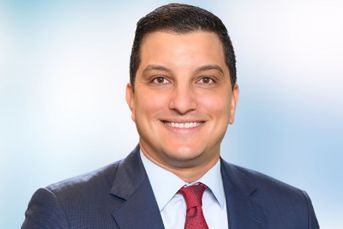Lessons from a fallen star
The rise and fall of superstar broker Don DeWaay says plenty about the state of the industry -- and its future.
The rise and fall of superstar broker Don DeWaay provides an object lesson for the investment advice industry and shines a light into its future.
DeWaay Financial Network LLC’s turbocharged approach to peddling product — in this case, high-commission private placements and real estate deals — is destined to end up on the wrong side of broker-dealer history.
A few years ago (right up to the financial crisis, in fact), making such a call about a business such as Mr. DeWaay’s would have been impossible. DeWaay Financial had a suite of offerings that included a municipal bond desk, a registered investment advisory firm and liquid brokerage assets. But illiquid private placements ultimately brought down the firm, just as they have felled dozens of others.
Until recently, Mr. DeWaay was the envy of his peers. Brokers in Central Iowa, where he is based, still tell tales from the turn of the millennium about the near impossibility of landing wealthy clients because they all seemed to be doing business with him.
Mr. DeWaay, a broker’s broker, as the saying goes, this month informed regulators that his self-named broker-dealer would be closing.
He definitely had his time in the limelight. Mr. DeWaay has been listed perennially on Barron’s list of top 100 independent financial advisers, a coveted distinction in a highly competitive industry.
But too much exposure to high-risk private placements put an end to DeWaay Financial Network, which faces a morass of litigation stemming from failed deals.
In an interview last Thursday, Mr. DeWaay would not say how much of his personal production as a broker came from selling alternative investments.
“We had a diversified business model that did a lot of work in marketable securities and alternatives but was not designed to focus on one area or the other,” Mr. DeWaay said.
The collapse of the real estate market and the credit freeze created the challenges that have resulted in client lawsuits, he said.
HOOKED ON PRIVATE PLACEMENTS
But a transcript of a July deposition of Mr. DeWaay reveals how hooked his firm was on selling private placements. They offered brokers commissions of 7%, as well as the cachet of selling affluent clients “private” and “exclusive” offerings far out of the reach of the hoi polloi.
The dizzying list of arcane-sounding deals included Cole 1031 Barry Woods Crossing; Bradford Drilling Associates XIV; and, most notably, DBSI products.
Those products were at the center of the firm’s unraveling. DeWaay Financial faces more than $30 million in liabilities connected to investor complaints over DBSI. The real estate syndicator, which packaged deals known as 1031 tenant-in-common exchanges, filed for bankruptcy protection in 2008.
BRAND NAME
DeWaay Financial Network also offered a number of private funds stamped with the owner’s moniker. In the deposition, Mr. DeWaay said he was acquainted with most of the private placements his firm sold.
“I wasn’t personally involved in the sale of all those products, particularly the 1031 exchanges, but familiar with the majority, I would say yes,” he said.
Though not the only firm to be undone by private placements, DeWaay Financial stands out because of Mr. DeWaay’s prominent profile. According to a count by InvestmentNews, 28 firms that sold high-risk, dubious private placements have closed since March 2010. That’s when such businesses began imploding with stunning regularity.
LIQUIDITY IS KEY
In this age of rock-bottom interest rates and paltry equity returns, alternative investments have a legitimate place in some portfolios. Making such investments for wealthy clients might makes sense if they have the tolerance for risk.
But it is a doomed strategy for advisers to build a substantial part of their business on placing retail clients — even high-net-worth ones — into alternative investments that have limited or no liquidity. And the adviser’s failure comes at clients’ expense.
Two years ago, Mr. DeWaay scoffed at such a notion.
“I don’t think private investments are inherently more risky,” Mr. DeWaay told InvestmentNews in 2010. “Most firms just dabble in this kind of stuff. They don’t make it a priority,” he said. Investors should question whether firms they deal with spend enough time performing “proper due diligence” on private deals, he added.
“We watch over what happens. We tend to be far more deliberate. We sit on boards and have control over money, as much as we can,” Mr. DeWaay said.
He sounded surprised and humbled in the end, though.
“A lot of things have changed for me, particularly in the last 12 months … at a velocity that I never thought would have been possible,” his deposition said.
“So the challenge has been, you know, trying to work out settlements with the banks of the real estate. There have been challenges related to maintaining staffing at the company. Thus, we’ve had to liquidate some assets.”
[email protected] Twitter: @bdnewsguy
Learn more about reprints and licensing for this article.








